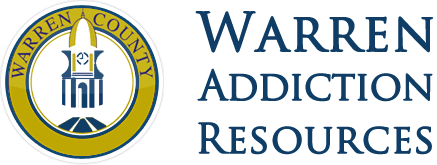Warning Signs for Relapse
While thinking about relapse prevention and aftercare plans, it is important to understand relapse situations and how they work. By so doing, you might be able to prepare yourself for these processes before they even occur. Read on to find out more:
Understanding Drug and Alcohol Relapse
In many instances, you will discover that relapses are processes and not events. They take place over several stages, and often start several days, weeks, or even months before you actually go back to substance abuse after a period of sobriety.
By understanding the various warning signs of a drug or alcohol relapse, you might be able to form better and more specific relapse prevention and aftercare plans. Essentially, relapse takes place in three distinct stages:
1. Emotional Relapse
When you are going through emotional relapse, you will not have started thinking about drug and alcohol abuse. However, your behaviors and emotions would already be setting you up for potential relapse within the near future.
Often, emotional relapse is characterized by the some signs and symptoms. Understanding these signs could make it easier for you to activate your relapse prevention and aftercare plan to ensure that you do not succumb to them. They include but are not always limited to:
- Anger
- Anxiety
- Defensiveness
- Intolerance
- Isolation
- Mood swings
- Not asking anyone for help
- Poor eating habits
- Poor sleep habits
- Refusing to attend support group and recovery meetings
Often, these signs of an emotional relapse could also symptomize post-acute withdrawal. As a result, it is essential that you try as hard as you can to prevent yourself from relapsing. This is because it would be easier for you to pull back from a relapse when it is still at its early stages. If you continue down the road to relapse, you might encounter faster sequences of events that might be difficult to deal with.
2. Mental Relapse
When you experience mental relapse, you would typically be struggling with psychological issues. For instance, part of your mind might be asking you to start using drugs while another part would be stopping you.
When you are still in the early stages of a mental relapse, you would typically think idly about substance abuse and addiction. Later in the phase, you will start getting concrete thoughts about using.
Mental relapse is marked by the following distinct signs:
- Fantasizing about using
- Glamorizing your past substance use
- Lying
- Planning your oncoming relapse around the schedules of other people
- Spending time with people you used to take drugs with
- Thinking about relapse
- Thinking about the places, things, and people that you used to take drugs with
It would be difficult for you to make the right decisions when you are experiencing mental relapse. This is because the attraction of substance abuse and addiction will only grow stronger with time.
3. Physical Relapse
Physical relapse is the last stage that you will get to. When you have been thinking about using drugs and drinking alcohol, it won't take long for you to find that you have started taking these substances of abuse. This is unless you have a strong relapse prevention and aftercare plan to back you up.
It would also be difficult for you to stop the relapse process once you graduate from emotional to physical relapse. However, you should not focus your recovery efforts on these thoughts.
By understanding all the early warning signs of an impending relapse, as well as learning to identify post-acute withdrawal, it might be possible for you to catch yourself and prevent your relapse before it happens.
Unique Relapse Prevention and Aftercare Tips
Irrespective of your stage of relapse, it is essential that you learn how to identify any warning signs before it is too late. There are some things that you can do to ensure that you do not relapse, such as:
- Dealing with anxiety
- Distracting yourself whenever you think about substance abuse
- Improving your eating and sleep habits when they start slipping
- Informing people whenever you experience urges to start using again
- Keeping yourself busy for at least 30 minutes when you develop urges to use
- Making relaxation a major part of your ongoing recovery
- Practicing relaxation techniques
- Reminding yourself of all the negative consequences of substance abuse and addiction
- Taking good care of yourself
- Taking it a day at a time
- Try to overcome any urges to use drugs or drink alcohol
In the long run, having a strong and stable relapse prevention and aftercare plan could go a long way in ensuring that you do not succumb to your growing urges to start taking drugs again.
CITATIONS
https://pubs.niaaa.nih.gov/publications/arp3-2/151-160.pdf
https://www.drugabuse.gov/publications/drugs-brains-behavior-science-addiction/treatment-recovery
https://www.ncbi.nlm.nih.gov/pmc/articles/PMC4609495/
https://www.ncbi.nlm.nih.gov/pmc/articles/PMC5688890/
We can help you find the right treatment facility that best fits your overall needs and financial requirements.
Drug Rehab Centers by State
Select a State:
- Alabama
- Alaska
- Arizona
- Arkansas
- California
- Colorado
- Connecticut
- Delaware
- Florida
- Georgia
- Hawaii
- Idaho
- Illinois
- Indiana
- Iowa
- Kansas
- Kentucky
- Louisiana
- Maine
- Maryland
- Massachusetts
- Michigan
- Minnesota
- Mississippi
- Missouri
- Montana
- Nebraska
- Nevada
- New Hampshire
- New Jersey
- New Mexico
- New York
- North Carolina
- North Dakota
- Ohio
- Oklahoma
- Oregon
- Pennsylvania
- Rhode Island
- South Carolina
- South Dakota
- Tennessee
- Texas
- Utah
- Vermont
- Virginia
- Washington
- West Virginia
- Wisconsin
- Wyoming
